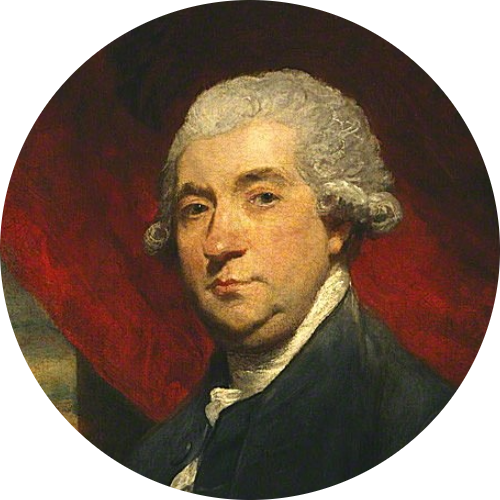Physician and lecturer on chemistry and materia medica at the University of Edinburgh. Cullen was born at Hamilton, Lanarkshire, the son of William Cullen and Elizabeth Robertson. Married (1741) to Anna Johnstone (d. 1786), with whom he had 11 children.
Cullen was educated at the University of Glasgow before, in 1729, he became a surgeon on a merchant ship going to the West Indies. Upon his arrival back in London, he worked for a time as assistant to an apothecary until, in the winter of 1731-32, he returned to Scotland. From 1737 to 1739 Cullen was Chief Magistrate of Hamilton. M.D. from Glasgow (1740). In 1751 he became Professor of Medicine at Glasgow, and in 1755 Professor of Chemistry at Edinburgh. In 1760 he began lecturing in Materia Medica as well. In 1766 he was elected Professor of the Theory of Physic, and from 1768 to 1773 he was joint lecturer, with John Gregory (d. 1773), in the practice of medicine, continuing as sole lecturer following Gregory's death. President of the Edinburgh College of Physicians (1773-1775). Fellow of the Royal Society of London (1777). He resigned his professorship on December 30, 1789, dying just a little more than a month later.
Cullen was the author of several works, including Synopsis Nosologiæ Methodicæ (1769), Institutions of Medicine, Part I. Physiology (1772), First Lines of the practice of Physic (4 vols, 1776-1784) and A treatise of Materia Medica (1789).1
Boswell attended Cullen's lecture at the University of Edinburgh on October 27, 1762. He described the occasion thus: "I liked him much, and I was highly amused to see a numerous audience of young physicians eager to receive instruction and full of the importance of their own profession."
On August 16, 1773, Cullen had supper with Boswell and Johnson in Edinburgh, shortly before the beginning of their tour to the Western Isles. Also present were Cullen's son Robert, the philosopher Adam Ferguson and Boswell's close associate Andrew Crosbie. According to Boswell in Journal of a Tour to the Hebrides, Cullen "talked in a very entertaining manner of people walking and conversing in their sleep."
Cullen's works are hard to find today. A few books have been written about him, e.g. Doig, Ferguson, Milne & Passmore's (1990) William Cullen and the Eighteenth Century Medical World. A search for William Cullen in the title at AbeBooks may also yield a few results - be sure not to confuse him with poet William Cullen Bryant.
In 2015, his collected case letters were made available online by The Royal College of Physicians of Edinburgh and the University of Glasgow as part of The Cullen Project.
